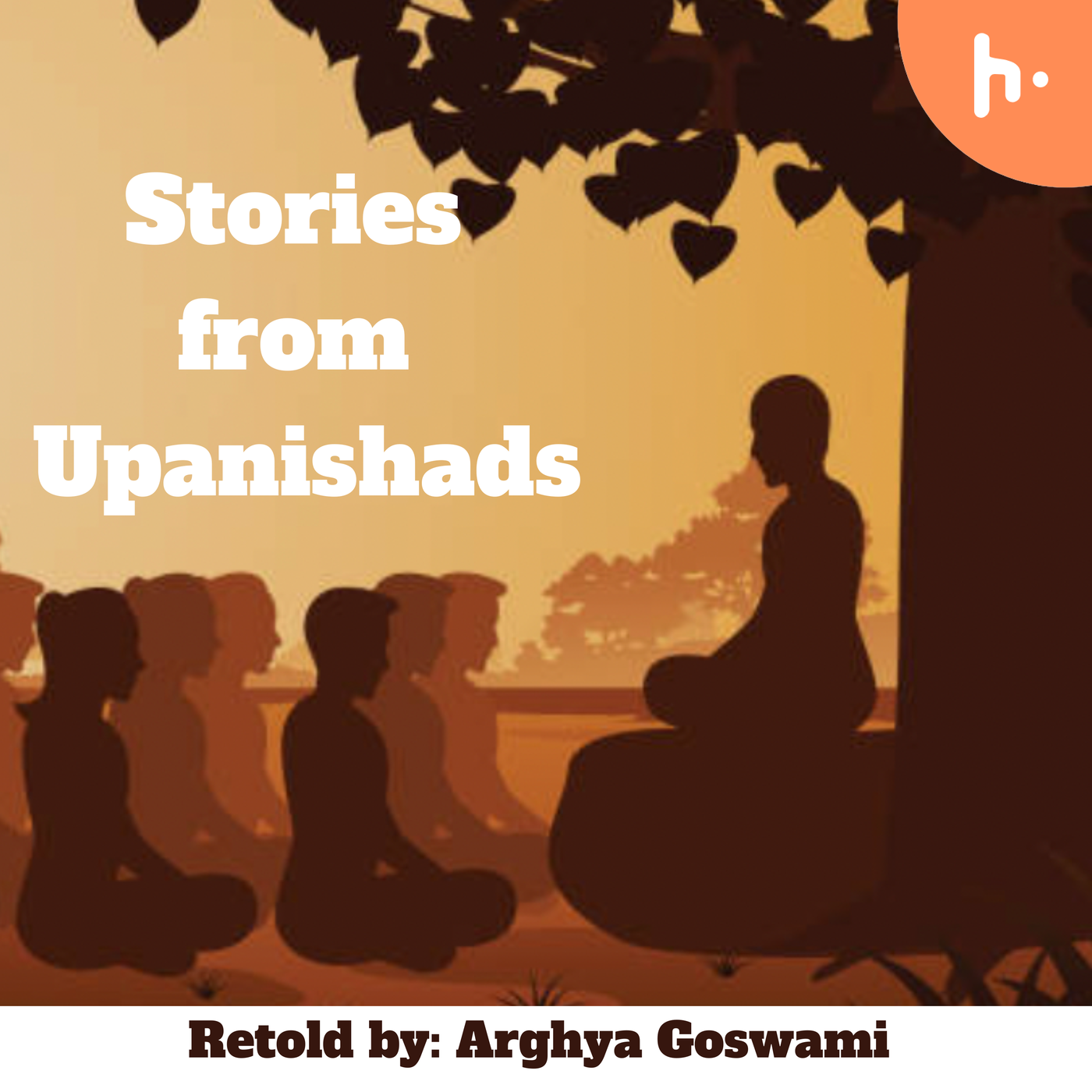Episode 5 - Story of Praana!
Description
Hello Friends, wishing you all a very happy Dusherra and Subho Bijoya Dashami. I welcome you all to another episode of Stories from Upanishads. Today’s interesting story appears in the 3rd Brahmana of the 1st Adhyaya of Bṛhadāraṇyaka Upaniṣad. In my podcast series, this is the first story from this Upanishad, which is a part of Shukla Yajurveda and believed to be composed between the 9th-6th centuries BCE. It is one of the Dashopnishads to which Adi Shankaracharya provided his Bhasya- commentary.
Prajapati (Lord Brahma or Supreme Father) had two kinds of children - Asuras -Demons and Devas -gods. Asuras were influenced by their natural thoughts and actions based only on perception and inference. They were directed merely to visual ends. The Devas - gods shined under the influence of thoughts and actions taught by the scriptures. Asuras (Demons) who were the elder ones were more in number whereas Devas (gods) the younger ones were fewer. The asuras were strong, powerful, misguided, selfish and always willing to show their supremacy over others. These traits were not liked by their younger siblings - gods. They were generous, helping, lovable, respected all beings and wise! The younger siblings were tired of their elder brothers as they always wanted to dominate on them by snatching away their belongings such as Heaven. The gods were irritated and annoyed by this behaviour of Asuras. Since they were fewer in number, they decided to perform a yagna - a sacrifice called Jyotiṣṭoma, to overcome their troublesome brothers. On a side note: Jyotishstoma, is a form of Vedic sacrifice which literally means “praise of light”. However, this sacrificial Yagna has different meanings throughout Indian scriptures. The word -“Jyotish” means “Light” and the word -“Stoma” means “sacrifice”. However, the literal meaning ranges from, a yagna in which Soma is offered…to a yagna which requires 16 officiating priests. For the sake of understanding, let’s think of it… as some large-scale yagna or (sacrifice). Well coming back to the story, devas were hell-bent on performing the difficult Jyotishstoma Yagna, but there was an issue.
The Yagna required perfect pronunciation and recitation of mantras or (chants) which could be only done by a Udgaatr, who will act as Udgaatri and will sing Udgitha.
On a side note - Let me explain to you these terms, …as per Āpastamba-yajña-paribhāṣā-sūtras, Udgaatr is the priest with Sama Veda, Hotr priest performs Rig Veda, Adhvaryu priest performs Yajur Veda and the Brahmaa priest performs with all three Vedas. When the priest chants the verses at the yagna, they could ask for gifts or blessings both for the Yajamana -the host and also for themselves. If the chanting was perfect, both would receive the boons or blessings they desired!
The gods consulted among themselves and debated on the various organs of senses to become their Udgaatri as they were pure! They all decided that a mouth with a sense of Vaak or Speech should be their Udgaatri and will sing Udgitha during the yagna. Mouth agreed to participate in this noble motive. Thus the Mouth with its Speech becomes an Udgaatri and begins chanting Udgitha for her Yajamana - the gods. She begins to chant Pavamana abhyaaroha - the Chants of purification
Speech chanted -Aum, asato mā sadgamaya, tamaso mā jyotirgamaya, mṛtyormā'mṛtaṃ gamaya.Aum Shantih, Shantih, Shantih!Again on a side note - This supreme divine Pavamana Abhyaaroha has been hailed as one of the most powerful mantras from the Upanishads. Although different thinkers, philosophers and saints have translated this mantra in different ways, however, the basic meaning still remained the same. The most common and popular meaning states that -“
From falsehood lead me to truth, From darkness lead me to light, From death lead me to immortality.”
Coming back to the story…
The purest chants of pavamana abhyaaroha filled the air, the
More Episodes
Today's story is taken from Maitreya Upanishad. This story is featured in chapter 1 of the Upanishad. This chapter describes the dialogue between the great ascetic king Brihaadratha from the Ikshvaaku dynasty or Solar dynasty and Sage Saakaayana.
Please like, share, subscribe and download my...
Published 09/23/23
Published 09/23/23
The part 2 of Maandukya Upanishad deals with "AUM". It describes verses 8-12 from the Upanishad. It tells us about "AUM", how do you pronounce it? What happens when you chant "AUM" and many other secrets lying hidden in the syllable "AUM"?
How it is connected to Viraat Purush, Hiraanyagarbha,...
Published 09/01/23


